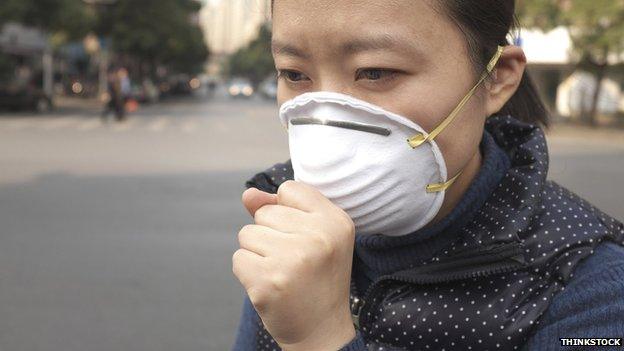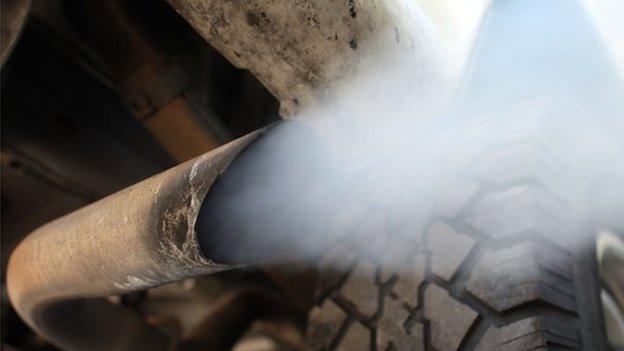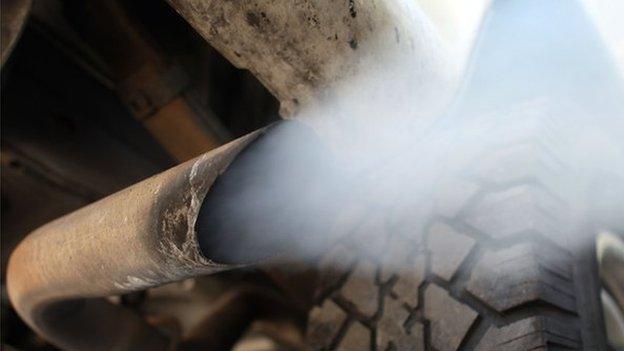Autism link to air pollution raised
- Published

A link between autism and air pollution exposure during pregnancy has been suggested by scientists.
The Harvard School of Public Health team said high levels of pollution had been linked to a doubling of autism in their study of 1,767 children.
They said tiny particulate matter, which can pass from the lungs to the bloodstream, may be to blame.
Experts said pregnant women should minimise their exposure, although the link had still to be proven.
Air pollution is definitely damaging. The World Health Organization estimates it causes 3.7 million deaths each year, external.
The study, published in Environmental Health Perspectives, external, investigated any possible link with autism.
Pollutants
It analysed 245 children with autism and 1,522 without.
By looking at estimated pollution exposure during pregnancy, based on the mother's home address, the scientists concluded high levels of pollution were more common in children with autism.
The strongest link was with fine particulate matter - invisible specks of mineral dust, carbon and other chemicals - that enter the bloodstream and cause damage throughout the body.

Nitrogen dioxide is a by-product of diesel engines
Yet, the research is unable to conclusively say that pollution causes autism as there could be other factors that were not accounted for in the study.
Consistent pattern
There is a large inherited component to autism, but lead researcher Dr Marc Weisskopf said there was mounting evidence that air pollution may play a role too.
He said: "The specificity of our findings for the pregnancy period, and third trimester in particular, rules out many other possible explanations for these findings.
"The evidence base for a role for maternal exposure to air pollution increasing the risk of autism spectrum disorders is becoming quite strong.
"This not only gives us important insight as we continue to pursue the origins of autism spectrum disorders, but as a modifiable exposure, opens the door to thinking about possible preventative measures."
Prof Frank Kelly, the director of the environmental research group at King's College London, told the BBC: "I think if it was this study by itself I wouldn't take much notice, but it's now the fifth that has come to the same conclusion.
"It is biologically plausible, the placenta is there to ensure the foetus has optimal supply of nutrients, but if chemicals are entering the mother's body then the foetus will have access to those too.
"Women should be made aware of the potential links so they don't get excessive exposure."
- Published8 December 2014

- Published7 May 2014

- Published10 April 2014
